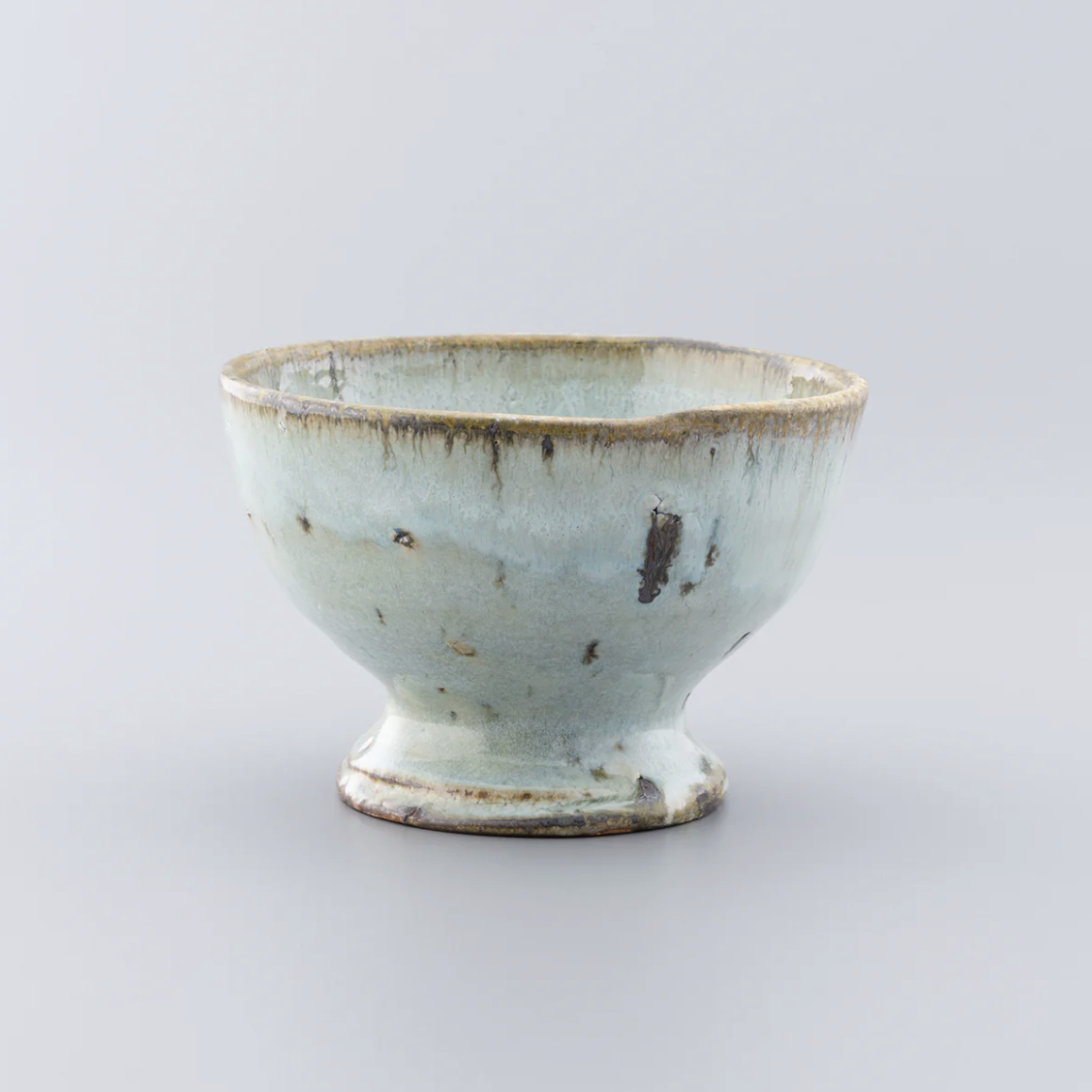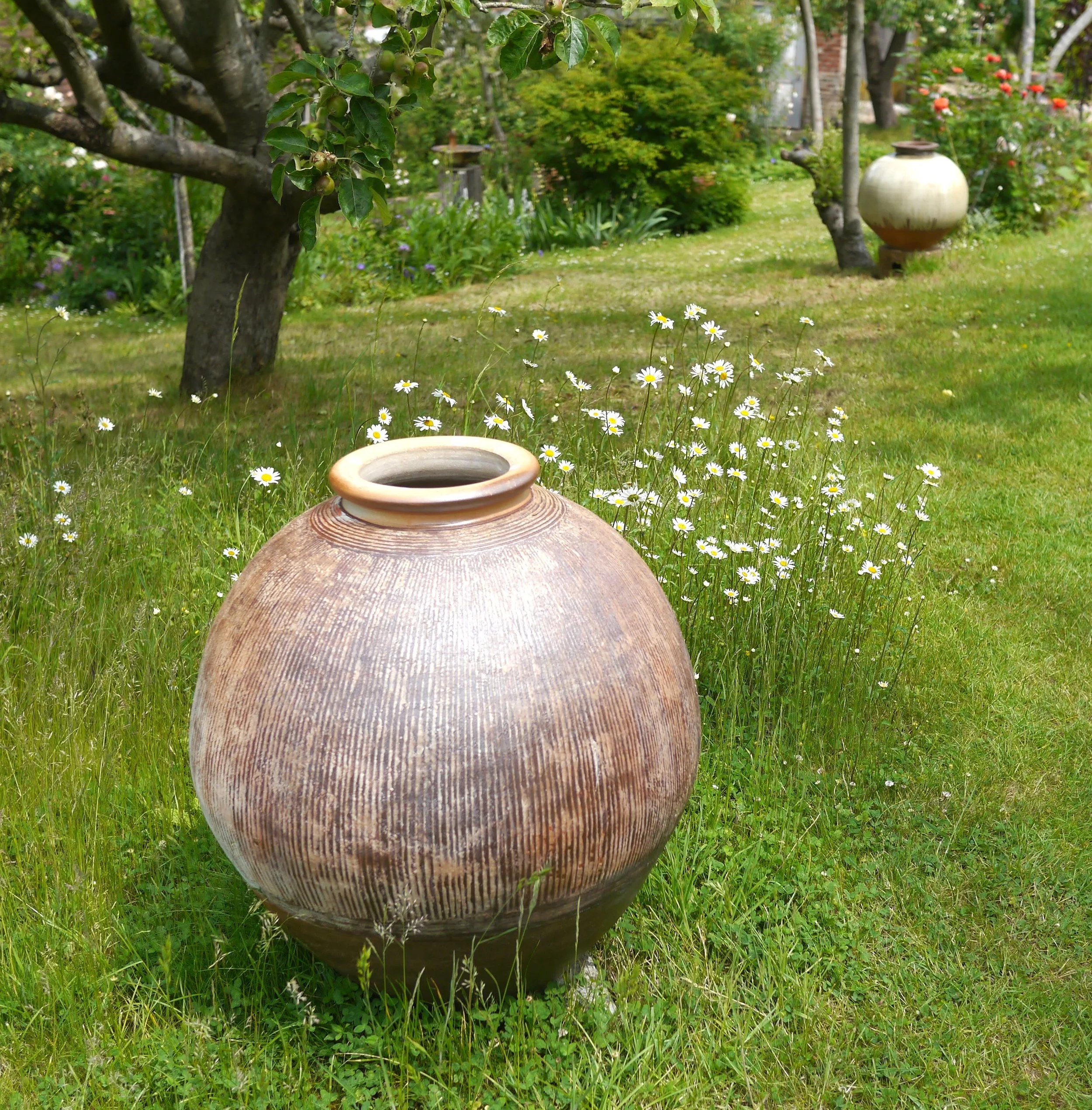Hong kong’s ink pioneer:
LUI SHOU-KWAN
Lui Shou-kwan (1919-1975) was one of the most significant artists in Hong Kong during the second half of the 20th century.
Recognized for his uniquely experimental approach, Lui is credited with expanding the tradition of Chinese painting by incorporating bold, gestural and abstract mark-making. (1) It was through this development of artistic language that he arrived at his most notable and unique form of Zen painting - an amalgamation of both allegorical and abstracted imagery. The resulting work traverses a fine line between representation and bold, pure mark-making, connecting traditional Chinese guohua practice with a more modern, international aesthetic.
Read the full article “Hong Kong’s Ink Pioneer: a Discussion of the Work of Lui Shou-kwan”
“All month long, riots have been raging but CUHK’s (Chinese University, Hong Kong) extramural ink painting classes have never been disrupted… Guo Gong thought it noble of Qu Yuan to rather feed himself to the fish than to go with the tide. I cannot bring myself to concur. Anyone with an aspiration should strive to stay alive and change the world in order to prove themselves.”
Lui earned his bachelor’s degree in economics at the Guangzhou University immediately after the Second World War. (2) In 1948 during a period of great political upheaval and social unrest, Lui Shou-kwan and his family moved to Hong Kong ahead of China’s ensuing Cultural Revolution.
Here, while working for the Yaumatei Ferry Company, Lui Shou-kwan initially took greatest inspiration from the surrounding landscape of mountains and sea views. However, it is more often written that Lui’s work was born out of his exposure to and knowledge of Western painters such as Franz Kline, Jackson Pollock and Robert Motherwell. (3)
In Hong Kong he is regularly credited with fusing the two dominant streams of Chinese and Western art. (4) Certainly he travelled widely to gain further understanding and influence for his paintings from the West. But to situate his work in a global canon, one in which it is understood predominantly in terms of its relationship to the modern art of the West, is to ignore the social-historical reality of its making and the view that ‘art, tradition, modern or contemporary should be considered primarily within its own historical context.’ (5)
Hong Kong art of this time was not simply being addressed to a local audience, but to an audience in the process of recognising its own autonomy. Lui’s art participated in the desire to affirm Hong Kong identity and even to some extent helped to give birth to it. (6) As he said himself;
“The highest standard of art is truth, benevolence and beauty. The work of art is the emotive expression of humans on all things in the world, so that ‘the viewer cannot fully grasp its ingenuity’, as the saying goes. As time goes on, there is no end to art which should not be defined in terms of ‘schools’. Those who can innovate are original and those who cannot are obsolete, even if the work looks modern.”
Lui Shou-kwan - Lotus, 1970
150.2 x 83 cm
Ink and watercolours on paper, hanging scroll
Signed and dated with three seals of the artist
Collection of The Master of the Water, Pine and Stone Retreat
Lui Shou-kwan - Chan Lotus, 1974
248 x 124 cm
Ink and watercolours on paper, hanging scroll
Signed and dated with three seals of the artist
Collection of The Master of the Water, Pine and Stone Retreat
Lui Shou-kwan - Lotus, 1970
151.7 x 83 cm
Ink and watercolours on paper, hanging scroll
Signed and dated with three seals of the artist
Collection of The Master of the Water, Pine and Stone Retreat
Lui Shou-kwan - Marble Gorge in Taiwan (detail), 1972
152 x 83 cm
Ink and watercolours on paper
Signed and dated with two seals of the artist
Collection of The Master of the Water, Pine and Stone Retreat
Lui Shou-kwan - Marble Gorge in Taiwan, 1972
Lui Shou-kwan - Marble Gorge in Taiwan (detail), 1972
Lui Shou-kwan - Journey, 1972
43.8 x 93.8 cm
Ink and watercolours on paper
With three seals of the artist (呂, 壽琨, pictorial/animal)
Inscription: 癸卯三月呂壽琨
Collection of The Master of the Water, Pine and Stone Retreat
Lui Shou-kwan - The Other Side of Mount Taiping, 1963
84 x 58 cm
Ink and colour on xuan paper, hanging scroll
With two seals of the artist
Collection of The Master of the Water, Pine and Stone Retreat
Lui Shou-kwan - Dwelling, 1965
45.3 x 45.5 cm
Ink and watercolours on paper, hanging scroll
With one seals of the artist (壽琨)
Inscription: 居乙巳深秋呂壽琨
Collection of The Master of the Water, Pine and Stone Retreat
Lui Shou-kwan - Journey, 1963
91.2 x 45.7 cm
Ink and watercolours on paper
With two seals of the artist (呂, 壽琨)
Inscription: 癸卯冬日香江呂壽琨
Collection of The Master of the Water, Pine and Stone Retreat
FROM THE JOURNAL
References
1 Whittaker, Alexander – Pavilion Gallery online publication, artist’s page – Lui Shou-kwan, accessed 10/4/21
2 Lai, Eliza – Lui Shou-kwan and the New Ink Movement in Hong Kong https://aaa.org.hk/en/ideas/ideas/shortlist-lui-shou-kwan-and-thenew-ink-painting-movement-in-hong-kong, accessed 10/4/21
3 Yiu, Josh Yiu, Josh – Preface to Two Masters, Two Generations and One Vision for Modern Chinese Painting. Paintings by Gao jianfu (1879-1951) and Lui Shou-Kwan (1919-1975) in The Chinese University of Hong Kong and The University of Oxford
4 Glauert, Rik – Indelible Influence, Tatler, Hong Kong, Art / Life, September 2015, http://www.alisan.com.hk/en/press.php, accessed 10/4/21
5 Silbergeld, Jerome - Modernization, Periodization, Canonization in Twentieth Century Chinese Painting, Seattle Art Museum, p15
6 Clarke, David – The Culture of a Border Within: Hong Kong Art and China, Art Journal, Summer 2000, Vol 59, No. 2 (Summer 2000)
* Yiu, Josh Lui Shou-kwan’s Study of Classical Paintings - Yiu himself notes that “a hand-written copy of the article is preserved in the Art Museum of the Chinese University of Hong Kong. Further research is needed to determine whether or when and where the article is first published.”




















